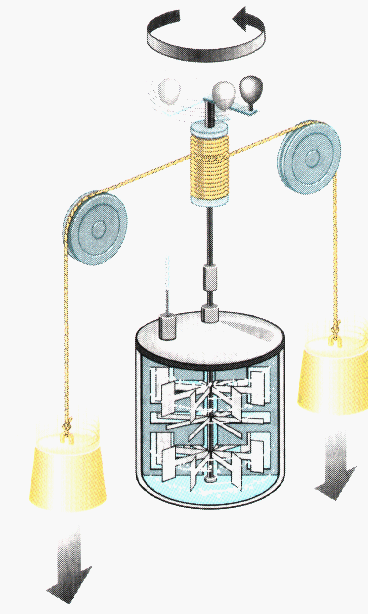

Work:
Work is measure of energy transfer that occurs when an object is moved over a distance by an external force at least part of which is applied in the direction of the displacement. If the force is constant, work may be computed by multiplying the length of the path by the component of the force acting along the path. Work done on a body is accomplished not only by a displacement of the body as a whole from one place to another but also, for example, by compressing a gas, by rotating a shaft, and even by causing invisible motions of the particles within a body by an external magnetic force.
No work, as understood in this context, is done unless the object is displaced in some way and there is a component of the force along the path over which the object is moved. Holding a heavy object stationary does not transfer energy to it, because there is no displacement. Holding the end of a rope on which a heavy object is being swung around at constant speed in a circle does not transfer energy to the object, because the force is toward the centre of the circle at a right angle to the displacement. No work is done in either case.
The mathematical expression for work depends upon the particular circumstances. Work done in compressing a gas at constant temperature may be expressed as the product of pressure times the change in volume. Work done by a torque in rotating a shaft may be expressed as the product of the torque times the angular displacement.
Work done on a body is equal to the increase in the energy of the body, for work transfers energy to the body. If, however, the applied force is opposite to the motion of the object, the work is considered to be negative, implying that energy is taken from the object. The units in which work is expressed are the same as those for energy, for example, in the meter-kilogram-second system, joule (newton-meter); in the centimeter-gram-second system, erg (dyne-centimeter); and in the English system, foot-pound.
Excerpt from the Encyclopedia Britannica without permission.